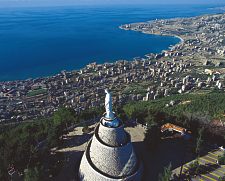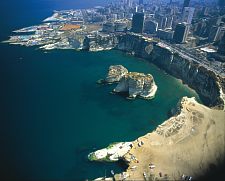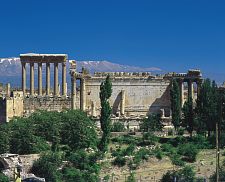|





| |
When Denial Can Kill
We Muslims must admit that our religion might be motivating the
bombers
by IRSHAD MANJI*
July 25, 2005 (©TIME
Magazine)
I was surprised last week to learn how easily some Westerners believe
terrorism can be explained. The realization unfolded as I looked into the sad
face of a student at Oxford University. After giving a speech about Islam, I met
this young magazine editor to talk about Islam's lost tradition of critical
thinking and reasoned debate. But we never got to that topic. Instead, we got
stuck on the July 7 bombings in London and what might have compelled four young,
British-raised, observant Muslim men to blow themselves up while taking innocent
others with them.
She emphasized their "relative economic deprivation." I answered that the lads
had immigrant parents who had worked hard to make something of themselves. I
reminded her that several of the 9/11 hijackers came from wealthy families, and
it's not as if they left the boys out of the will. Finally, I told her about my
conversation three years ago with the political leader of Islamic Jihad in Gaza.
"What's the difference between suicide, which the Koran condemns, and
martyrdom?" I asked. "Suicide," he replied, "is done out of despair. But
remember: most of our martyrs today were very successful in their earthly
lives." In short, there was a future to live for--and they detonated it anyway.
By this time, the Oxford student had grown somber. It was clear I had let her
down. I had failed to appreciate that the London bombers were victims of British
society. To be fair to her, she is right that marginalization, real or
perceived, diminishes self-esteem. Which, in turn, can make young people
vulnerable to those peddling a radical message of instant belonging. But suppose
the messages being peddled are marinated in religious rhetoric. Then wouldn't
you say religion plays some role in motivating these atrocities?
The student shifted uncomfortably. She just couldn't bring herself to examine my
suggestion seriously. And I suppose I couldn't expect her to. Not when Muslim
leaders themselves won't go there. Iqbal Sacranie, secretary-general for the
Muslim Council of Britain, is an example. In the midst of a debate with me, he
listed potential incentives to bomb, including "alienation" and "segregation."
But Islam? God forbid that the possibility even be entertained.
That is the dangerous denial from which mainstream Muslims need to emerge. While
our spokesmen assure us that Islam is an innocent bystander in today's
terrorism, those who commit terrorist acts often tell us otherwise. Mohammed
Atta, ringleader of the Sept. 11 hijackers, left behind a note asserting that
"it is enough for us to know that the Koran's verses are the words of the
Creator of the Earth and all the planets." Atta highlighted the Koran's
description of heaven. In 2004 the executioners of Nick Berg, an American
contractor in Iraq, alluded on tape to a different Koranic passage: "Whoever
kills a human being, except as punishment for murder or other villainy in the
land, shall be regarded as having killed all mankind." The spirit of that verse
forbids aggressive warfare, but the clause beginning with except is readily
deployed by militant Muslims as a loophole. If you want murder and villainy in
the land, they say, look no further than U.S. bootprints in Arab soil.
For too long, we Muslims have been sticking fingers in our ears and chanting
"Islam means peace" to drown out the negative noise from our holy book. Far
better to own up to it. Not erase or revise, just recognize it and thereby join
moderate Jews and Christians in confessing "sins of Scripture," as an American
bishop says about the Bible. In doing so, Muslims would show a thoughtful side
that builds trust with the wider communities of the West.
We could then cultivate the support to inspire cross-cultural understanding. For
instance, schools throughout the West should teach how Islamic civilization
helped give birth to the European Renaissance. Some of the first universities in
recorded history sprang up in 3rd century Iran, 9th century Baghdad and 10th
century Cairo. The Muslim world gave us mocha coffee, the guitar and even the
Spanish expression olé! (which has its root in the Arabic word Allah). Muslim
students would learn there is no shame in defending the values of pluralism.
Non-Muslim students would learn that those values took great inspiration from
Islamic culture. All would learn that Islam and the West are more interdependent
than divided.
Still, as long as Muslims live in pretense, we will be affirming that we have
something to hide. It's not enough for us to protest that radicals are
exploiting Islam as a sword. Of course they are. Now, moderate Muslims must stop
exploiting Islam as a shield--one that protects us from authentic introspection
and our neighbors from genuine understanding.
* Irshad Manji is the best-selling author of The Trouble with Islam Today.
It has been published internationally, including in Pakistan. The
Arabic translation is posted on her website (www.muslim-refusenik.com), and can be downloaded free
of charge.
|